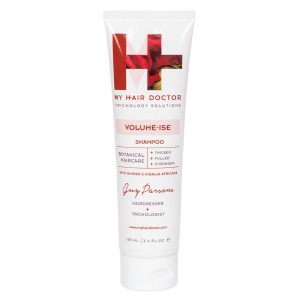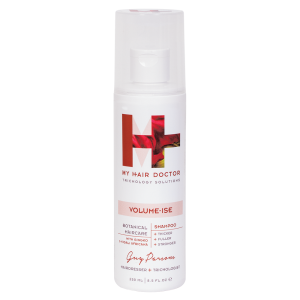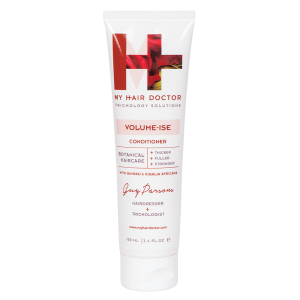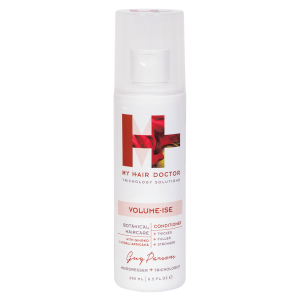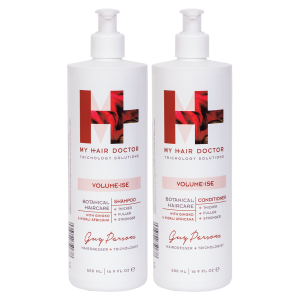Health & Nutrition, Hair Loss Women, Hair Science
BLOOD TESTS
The amount of information blood tests can supply can often be essential to potential diagnosis in the treatment of hair loss and thinning hair. It is usually best for your blood is taken after you have fasted for 12 hours, ideally in the morning before 11am, on an empty stomach.
The amount of information blood tests can supply can often be essential to potential diagnosis in the treatment of hair loss and thinning hair. It is usually best for your blood is taken after you have fasted for 12 hours, ideally in the morning before 11am, on an empty stomach.
Preparing for your Doctor
Visit Understand that most/many doctors or trichologist may use the product “Rogaine” as the answer to every question you ask. Approach your doctor assertively, and tell them you’d like a series of tests done to rule out underlying conditions. It is very possible all your tests will come back normal, but often times an imbalance is identified. Fixing that imbalance can restore your hair.
Blood Tests and Bloodwork: Diagnosing Women’s Hair Loss
Blood testing when done privately can be costly. Discuss with your doctor which tests are covered and which may be accessible under private medical insurance or personal payment. You could have blood tests done with your doctor, if you are seeing a Trichologist please do forward a copy of the results to them to then discuss. The following tests will provide information various things which could be causing hair problems:
- DHEA, DHEA Sulfate, Prolactin, Follicle Stimulating (FSH) and Leutinizing Hormone (LH)
- Androstenedione
- Free and Total Testosterone
- Thyroid Tests: T-3, T-4, and Thyroid Stimulating Hormone (TSH)
- Iron and Serum Ferritin and Total Iron Binding Capacity (TIBC)
- Hemoglobin/Hematocrit or CBC (Complete Blood Count) Low B12 and Associated Hairloss
- Low B12 – another cause of hair loss in women which is frequently missed by GP’s. It’s not a routine blood test and even when a person is tested for B12,
if the result is borderline they will rarely be treated. The minimum level for B12 is around 180 ng/l however most healthy people have a level of around 500ng/l. Symptoms of low B12 often occur when blood level drops below 300 ng/l and include hair loss, breathlessness, lack of energy palpitations, bleeding gums, mouth ulcers, tingling in the hands and feet.
There are two types of B12 deficiency:
- Lack of dietary B12 – usually vegetarians and vegans. B12 is mostly found in animal produce rather than plants. Solution – increase dietary B12 or/and take a B12 supplement.
- Autoimmune – Antibodies to intrinsic factor prevent absorption of dietary B12. A blood test for intrinsic factor can be carried out to determine if your problem is dietary or autoimmune. If your problem is auto immune your GP will do further investigation to try to determine why it has developed. Treatment – lifelong B12 injections.
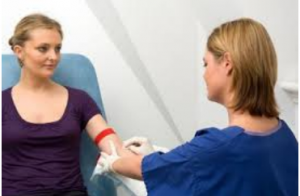 Please be aware that when testing for hormones, Oestrogens (female hormones) and Androgens (male hormones) that the test results may appear normal levels but both hormones can still affect your hair, depending on the sensitivity of your hair follicles to circulating hormones. You can also do further tests on liver and kidney functions and how they affect your hair as well as such things as triglycerides and cholesterol, all of which can have an impact on your hair that could result in thinning or hair loss. Expect your doctor to have varying degrees of understanding. Once you’ve got your results, it is possible that your doctor will say that everything is normal. Frequently doctors will read your blood tst differently to that of a trichologist. A doctor will be looking to results and how they affect your general health. A trichologist will look at solely how they affect your hair.
Please be aware that when testing for hormones, Oestrogens (female hormones) and Androgens (male hormones) that the test results may appear normal levels but both hormones can still affect your hair, depending on the sensitivity of your hair follicles to circulating hormones. You can also do further tests on liver and kidney functions and how they affect your hair as well as such things as triglycerides and cholesterol, all of which can have an impact on your hair that could result in thinning or hair loss. Expect your doctor to have varying degrees of understanding. Once you’ve got your results, it is possible that your doctor will say that everything is normal. Frequently doctors will read your blood tst differently to that of a trichologist. A doctor will be looking to results and how they affect your general health. A trichologist will look at solely how they affect your hair.
READING BLOOD TEST RESULTS
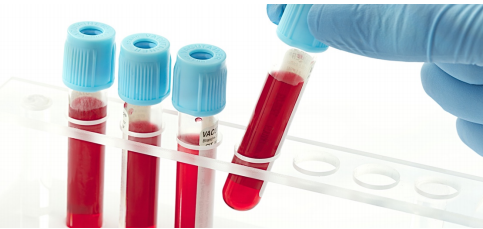
Once you are concerned about your hair loss and you have chosen the route of blood tests as a possible diagn
osis it is important for you to understand the results and the implications of them. For example, ferritin may have a reference range of 10-130 ug/L (micrograms per litre), with your results showing a reading of 30 ug/L. While this level is fine in terms of the wellbeing of vital organs, optimum ferritin levels for hair should be at least 80 ug/L and anything less can trigger increased hair fall, or decreased growth. Thyroid and haemoglobin levels are other examples of this and can be quite complex. If you are losing your hair, have spoken with your doctor and are still concerned by your blood tests, it’s best to speak with a trichologist for further analysis. We must not under estimate the impact of overuse of vitamin and mineral supplementation, these frequently have an effect on hair loss, as well as many prescription medications. It is impossible to predict the outcome of an individuals hair loss and prognosis as each individuals metabolic process is different and so there can be fluctuations in the gravity of the hair loss as well as the ability to recover.
Please also remember that most forms of hair loss are likely to occur some 2-4 months after the initial cause. So when you are experiencing hair loss please look back and recall the event or circumstances that may have contributed to the hairloss.
There are exceptions to this, these will be the medications, drugs that can be administered in strong doses such as those used in chemotherapy in the treatment of cancer. If hair loss begins immediately after starting a prescription, within a few days or a week, the cause is often something else – perhaps the illness that made it necessary for you to get treatment in the first place. However, if a certain drug does eventually cause excessive hair shedding, you can ask your doctor if there are other viable options available.
Volume-ise / Hairfood Active Botanicals


GINGKO
Working with Kigalia and Clary as an original blend of 3 plants acting synergistically and allowing scalp toning and limiting hair loss. They act on factors avoiding hair loss including 5-alpha-reductase inhibition, scalp microcirculation improvement and to decrease inflammation contributing to Seborrhoea (oiliness) which can block scalp follicles inhibiting growth.


KIGALIA AFRICANA
Working with Gingko and Clary as an original blend of 3 plants acting synergistically and allowing scalp toning and limiting hair loss . They act on factors avoiding hair loss including 5-alpha-reductase inhibition, scalp microcirculation improvement and to decrease inflammation contributing to Seborrhoea (oiliness) which can block scalp follicles inhibiting growth.


CLARY
Working with Kigalia and Gingko as an original blend of 3 plants acting synergistically and allowing scalp toning and limiting hair-loss. They act on factors avoiding hair loss including 5-alpha-reductase inhibition, scalp microcirculation improvement and to decrease inflammation contributing to Seborrhoea (oiliness) which can block scalp follicles inhibiting growth.




